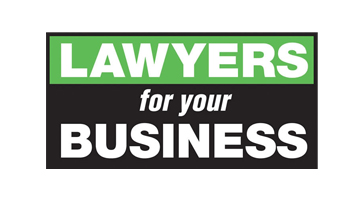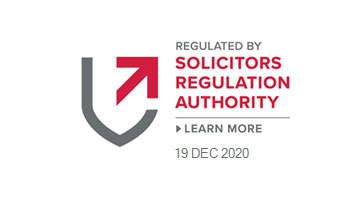Whether you are starting a new business or need small business legal advice, we can help.
The decisions you make when setting up in business can have a significant influence on the success — or failure — of your venture for years to come. If you are about to launch a new business or restructure an existing one, the advice of an experienced solicitor can help position you for success from the outset.
Starting a new business is one of the most exciting steps a person can take in their working life. But it’s also one where seeking good, professional advice – both legal and financial – is a must.
Speaking to a solicitor should be top of the list of “things to do” for a new entrepreneur; to understand what you’re getting into and the wide array of legal implications that go along with starting and running a business, call our business start-up solicitors on 0121 268 3208.
At Onyx Solicitors, our lawyers understand business. We have been helping clients incorporate businesses since 1996. We are available to assist clients with a full range of business start-up services, including:
Incorporation – becoming a limited company, sole trader, partnership or limited liability partnership (LLP)
Your new business can be set up in a number of ways, each with a different legal status. They are:
Limited Company: the legal liability begins and ends with the company, subject to the company being run in the manner expected by the Companies Act 2016, not you as an individual. Being a director brings certain obligations such as choosing a registered and trading address, having particular roles and responsibilities, filing accounts at Companies House, setting up a business bank account, regulatory compliance, etc.
Operating a limited company can have certain tax advantages for the directors and obtaining the advice of an accountant at the set up stage is vital to ensure that such advantages are obtained.
Sole trader: within this simple structure you are operating as an individual but don’t have limited liability with your business’ financial affairs. You are taxed as an individual and don’t have specific, regulated duties in the way a limited company director does. However, you should still seek legal advice on your liabilities.
Partnership: this involves going into business with one other person or multiple people, in which the debts and the assets of the company are jointly owned. This structure is often used when bringing two specialisms together – such as solicitors and accountants. Everything between the partners is equal, unless stated otherwise in a legal agreement.
LLP: a partnership with limited liability for the partners, which means liability doesn’t extend to their personal finances. This company type has to be incorporated at Companies House, therefore the information is in the public domain.
Shareholder/partnership agreements
These govern the relationship between the shareholders or partners, setting out how a company is going to run. Amongst other things, it determines how key decisions are to be made, what happens if a director or partner wants to leave, what restrictions will be enforced on their relationship with the company’s clients or contracts and how shares will be valued.
It’s vital to get advice so agreements between the business owners work in practice. And there are often legal issues beyond the knowledge of the partners which should be addressed.
Choosing premises – lease/ownership
You may choose to buy or rent business premises. That means knowing your obligations under a lease, such as break or the condition that you need to return a building in when you exit a lease.
You also need to be sure that you can use the premises for the purpose of your business: there might be restrictions preventing this.
Contract Terms and Conditions
A contract is the foundation of a successful business and mutual understanding between a supplier and customer. Getting paid is clearly essential for a business to operate and having a contract is fundamental. It governs what your business does and how you are going to get paid. It needs to outline your customers’ obligations, what happens if something goes wrong and what the payment terms are, including interest on overdue accounts. Without a contract, you have no contractual right of recourse and might end up in court relying upon the discretion of the court to determine the terms of the agreement which is far from ideal.
Handling employees
Having an employee statement of terms in place is a legal requirement so that both parties know their obligations. A company handbook sets out various policies and good practice which – if followed by you and your staff – should limit any potential claims brought against the company. Having access to legal advice about employment law helps you get it right with employees from the start.
Intellectual property
If an idea or concept belongs to your company, make sure you protect it. Obtaining trademarks or patents for unique ideas needs specialist legal advice. Further, you should be ensuring that your contracts stipulate that you retain ownership of your intellectual property.
Finance
Lawyers can help new businesses by referring you to reputable companies providing access to finance and assisting to create the right documentation to secure investment including personal guarantees and state back financing to small businesses.
Insurance
If something unexpected happens in your business and you’re not insured there’s both a financial and a legal implication: you could be committing an offence and face penalties. So, ensure you have adequate insurance which covers professional indemnity, employer liability, building and contents cover, fleet insurance for vehicles used on business and credit insurance to protect against non-payment.
License to trade
Depending on your particular industry, you may require a license to trade. For example a vehicle hire company or operating a licensed premises. A law firm can help you identify which licenses you need to comply with regulations and assist with the relevant applications.
Health and safety
You need to be aware of your health and safety obligations to employees, visitors and the general public. That means conducting risk assessments and having policies to ensure you protect people who come into contact with your company and, in turn, reduce the risk of accidents happening and potential investigations and prosecutions by the Health and Safety Executive.
How we can help
Onyx Solicitors has a breadth of legal experience in all areas of business, we will work together to ensure you conduct your business affairs correctly.
We can provide a range of commercial services to start-up companies on a fixed fee or tailored basis and can offer access to a vast network of other business professionals including accountants, banks, surveyors and insurance brokers. If you would like to speak to a specialist business start up solicitor call us on 0121 268 3208.





